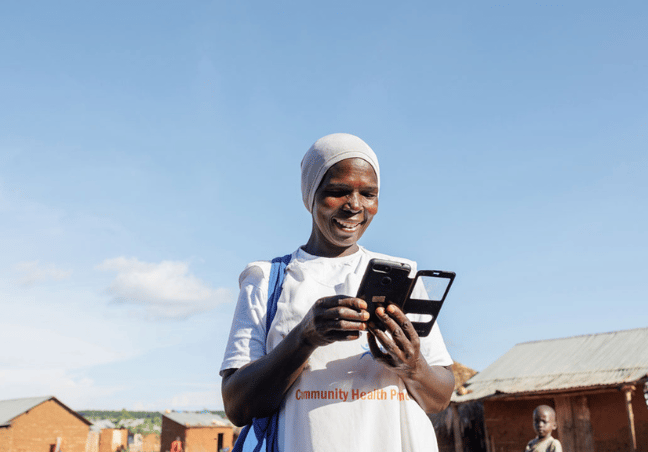Dear subscriber, this is a prototype. Please help us with feedback and tips. Just press reply.
Zambia has launched a $28 million programme to solarise 250 rural health facilities, secure solar vaccine refrigeration and expand access to care in areas without reliable electricity. The project is expected to expand vaccine reach to 1.3 million people and strengthen immunisation services across 95 districts by June 2026.
The Health Facility Solar Electrification initiative will deploy five to eight kilowatt peak solar photovoltaic systems alongside vaccine cold chain equipment.
Powering vaccine refrigerators and essential devices using solar energy addresses the high risk of vaccine spoilage in off-grid clinics.
Our take: One in four health facilities in sub-Saharan Africa operate without electricity, creating severe gaps in safe storage of medicines and continuity of emergency care…Read more (2 min)
A total of nine digital health startups attracted new funding in July and August to improve access to care across the continent’s climate-impacted health systems. Senegal’s Eyone and Côte d’Ivoire’s Meditect secured funding to expand platforms that digitalise medical records and connect health actors, addressing a persistent gap in healthcare systems.
Other startups that received funding include Optique for affordable eye care, Dawa Mkononi for pharmaceutical e-commerce, Tibu Health for on-demand care, CureRoot and Altera Biosciences for biotech innovation, Hewatele for oxygen supply and Be Girl for menstrual health.
Two women-led startups, Altera Biosciences and Be Girl secured funding, signifying inclusivity in this round.
Our take: Telehealth has the potential to seamlessly connect patients to doctors through mobile devices via direct and video calls…Read more (2 min)
Africa still bears 94% of malaria cases, with nearly 600,000 deaths yearly, according to WHO. Most deaths occur among children under five. To outpace resistance and climate threats, new innovations are currently being rolled out across the continent. They include dual insecticide bed nets, spatial repellents and emerging vaccines and therapies.
“Mosquitoes are changing quite a lot due to multiple things, including climate change,” says Eric Ochomo, Deputy Director, Kenya Medical Research Institute (KEMRI). “We are seeing a lot of early evening or early morning bites when people are not under nets. This complicates control efforts,”
Dual insecticide bed nets combine two active ingredients to overcome mosquito resistance. Trials across Africa showed they cut malaria infections in children by 50%. Spatial repellents, on the other hand, release protective vapours that stop mosquitoes from biting, even outside sleeping hours.
Our take: The fight against malaria advanced further when Swissmedic approved Coartem Baby, the first treatment for infants weighing less than five kilograms…Read more (2 min)
____________________


African Development Bank approves $46 million to boost health in northern Nigeria.
Events
🗓️ Register for the 26th Medexpo in Tanzania (September 10)
🗓️ Participate in the World Health Expo in Kenya (October 6)
🗓️ Attend the Healthcare Innovation Summit in South Africa (October 22)
🗓️ Attend the International Conference on Public Health in SA (October 24)
Jobs
🧑⚕️ Be the next Team Lead, Women’s Health at PATH (Kenya)
🧑⚕️ Apply for the Public Health Field Program Monitor at ZemiTek (Uganda)
🧑⚕️ Become a Med-Access Consultant at Resolve To Save Lives (Nigeria)
Various
💉 Amref and partners expand healthcare in Uganda
💉 South Africa’s health department incorporates traditional medicine
💉 Africa’s tentative start in mass vaccine production
Seen on LinkedIn
Jean Kaseys, the Director General at Africa CDC, says, “At the opening of the 75th WHO Regional Committee for Africa in Lusaka, I emphasized Africa’s path to health sovereignty: stronger health financing, local manufacturing, and true unity.”_____________


